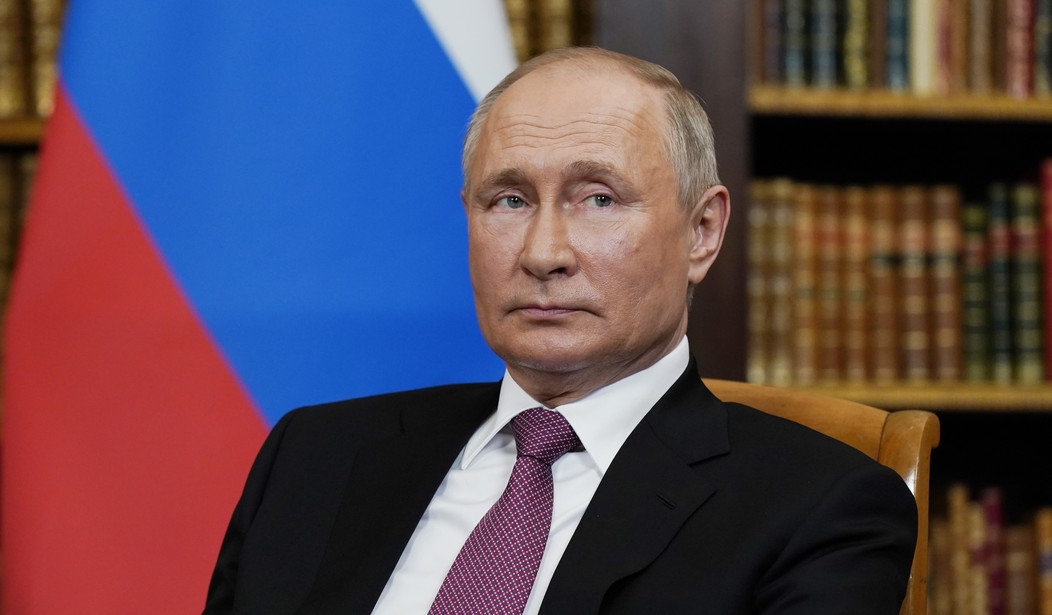On December 7, 2021, President Biden had a two-hour telephone conference with Russia's President, Vladimir Putin, to discuss the tense situation on the Russian-Ukrainian border. Mr. Biden's objective was to dissuade Mr. Putin from his apparent, imminent plan to invade Ukraine. However, given that Putin is a former KGB officer, cold, calculating, and a sharp thinker and President Biden is not exactly known for his intellect, it is unlikely that Biden convinced Putin to order Russia's troops on the Ukrainian border to stand down.
A war between the United States and Russia over Ukraine is doubtful, and Putin knows it. Still, a Russian invasion of Ukraine would certainly increase European stress and lead to military build-ups in Western and Eastern Europe, increasing the likelihood of armed conflict between the NATO allies - including the United States - and Russia. It is, therefore, time for someone in charge to start thinking thoughtfully and strategically about Putin's ambitions, where those ambitions may lead us, and about exactly who we are and what we stand for.
First, does the Biden administration understand why Russia is doing this? What does Russia stand to gain by destabilizing the region? Various media platforms have speculated that Russia believes an invasion of Ukraine would allow Russia to increase its natural gas exports. Other outlets have offered psychiatric diagnoses, opining that Putin is mentally unwell and is using nationalism to drum up domestic support. These explanations are unhelpful and miss the point. Dismissing Russian motivations as opportunistic or crazy simply because they don't align with the sensibilities of Senator Bernie Sanders and The Squad is not productive and will eventually get people killed. Those same sensibilities caused the death of 13 of our soldiers and Marines at Hamid Karzai International Airport and our humiliating retreat from Afghanistan.
Ukraine and Russia are two different countries, but with an intertwined history and culture. Kyiv, Ukraine's capital, was the capital of ancient Kievan Rus, a proto-state that existed a thousand years ago but eventually became today's Belarus, Ukraine, and western Russia. All three nations claim Kievan Rus as their cultural forefather. Putin's vision for a return to greatness includes reuniting and incorporating the territories which made up Kievan Rus into Russia. It is worth noting that Russia has been talking with Belarus about unifying those two countries. Ukrainians are less amenable to the idea. The Ukrainian and Russian languages are similar, and in many parts of Ukraine, a mix of the two languages known as Surzhyk is spoken. While this linguistic and cultural blending results from the two countries' shared lineage and proximity, it is also a result of past Russian imperialism. For example, Russia's 2014 annexation of Ukraine's the Crimean Peninsula was nothing novel. In 1783, Catherine the Great, Empress of Russia, annexed Crimea, and for essentially the same reason as in 2014. Russia then, and now, needed Crimea's warm water port, Sevastopol. Most of Russia's coast is frozen much of the year and useless for seaports. Crimea gives Russia access to the Black Sea; the Black Sea gives Russia access to the Bosporus; the Bosporus gives Russia access to the Mediterranean, and so on. Putin is dusting off Catherine the Great's playbook, and for a good reason. During Catherine's reign, Russia gained recognition as a European powerhouse. Putin wants to do it again.
Recommended
Second, can Russia take Ukraine? Analysts estimate that Russia is building a force of about 175,000 troops on the Russian border with Ukraine. Ukraine's defense minister told CNN that Ukraine currently has about 450,000 active duty and reserve troops. This war would by no means be easy for either side and would almost certainly result in widespread death and destruction on both sides. Nevertheless, if Ukraine survives Putin's invasion and thereby prevents European militarization and instability, it will need material and logistical assistance. If history shows us anything about Russia at war, it shows that Russia is a savage enemy.
So, given the grim possibilities, should the United States worry about Putin's apparent ambition? First and foremost, the United States military needs to protect America and its strategic interests. But, before we can do that, there needs to be an honest assessment of America's NATO allies. For several decades now, Western Europeans have demonstrated a belief that Americans, not necessarily them, should be willing to die for Western European interests and objectives. For example, our Western European allies yoked us into sending significant numbers of troops into a disintegrating Yugoslavia to beat back Serbian aggression in the 1990s. They were too comfortable and too broke from their extravagant social programs to lead the way in confronting chaos in the Balkans, even though the crisis presented an immediate threat to European stability. So, the United States did the heavy lifting even though there was no immediate threat to the United States. Likewise, Western Europe hopes the United States will do the heavy lifting in Ukraine should Putin carry through with his plans.
If Russia plans a march into Ukraine, the United States needs to complete this assessment of its allies before committing American lives to any future fight. We should not put our most dutiful and patriotic young people at risk if Europeans have decided personal comfort and social equity are more important than freedom and national sovereignty. Moreover, Ukraine has a long history of deadly confrontation with Russian aggression and abuse. That experience will inspire Ukrainians to fight for a free and independent Ukraine. Sending American troops is probably off the table as the Ukrainians themselves have said they don't need them, but NATO should not abandon Ukraine. At a minimum, Ukraine deserves support in the form of military equipment and intelligence sharing. The question of sending troops is for another day when there is a broader conflict and hopefully when we have an informed and serious-minded commander-in-chief.
























Join the conversation as a VIP Member